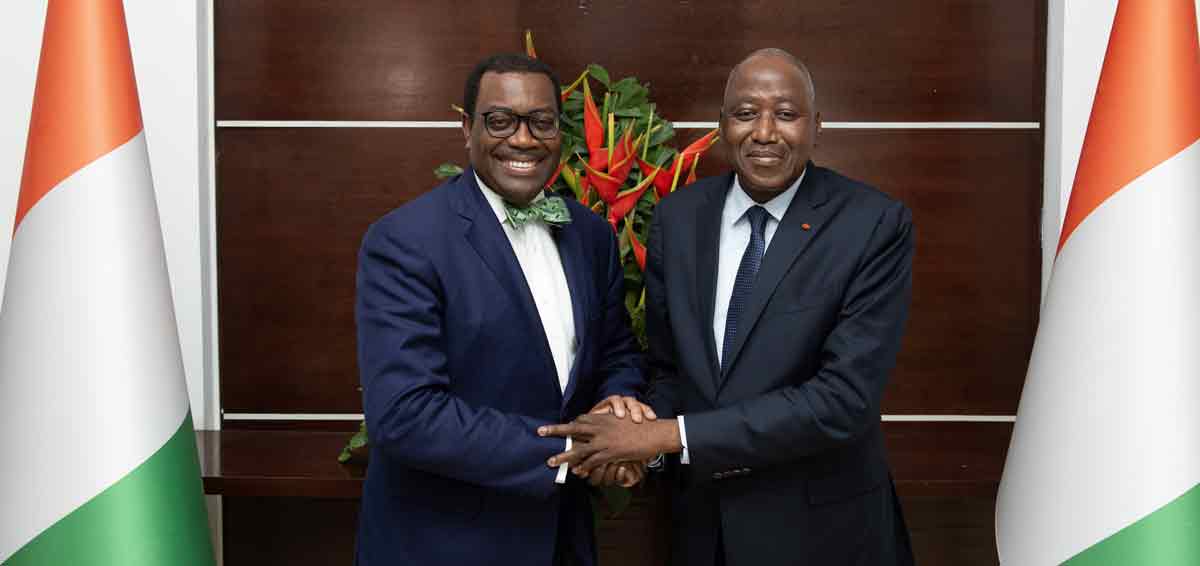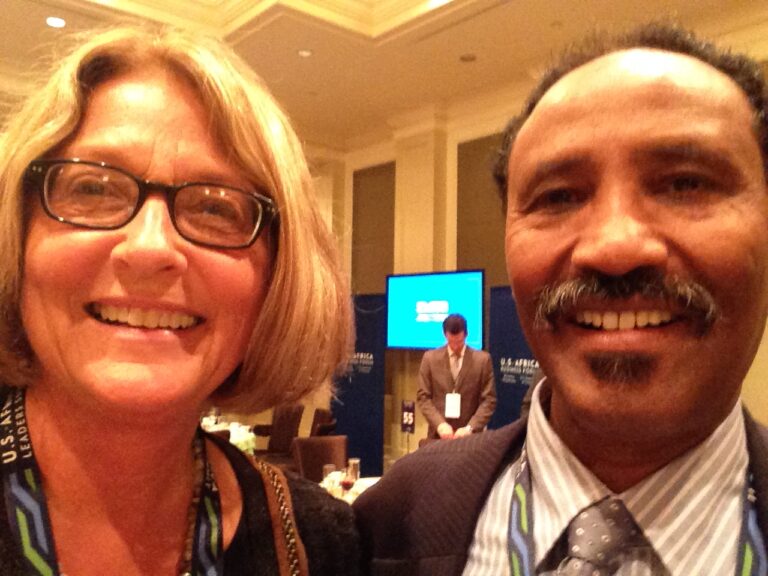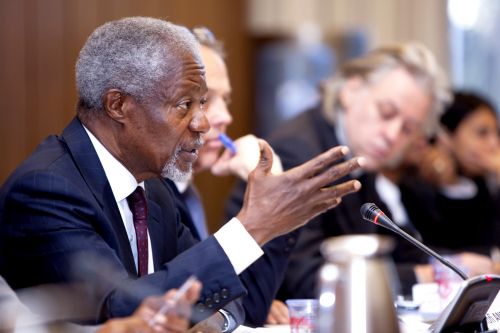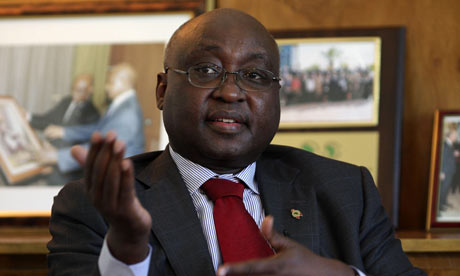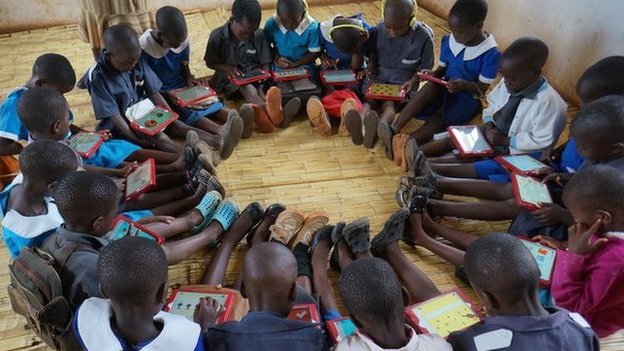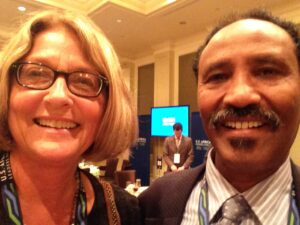Bigger is better for Ghana’s malls
November 08, 2014
Billie Adwoa McTernan in Accra*
[caption id="attachment_13895" align="alignleft" width="300"] The shiny new malls are aimed at middle-class Ghanaians, but also attract big spenders from Nigeria. Photo©Chris Stein for JA[/caption]
New shopping centres are sweeping the continent, and they are bigger, shinier and busier. In West Africa, Ghana is taking the lead with the largest in the region.
A 30-minute drive from central Accra along the Accra-Cape Coast motorway takes you to Weija, a rapidly developing neighbourhood soon to be home to West Africa's largest shopping mall.
A grand site and a new road bypass are currently being constructed as part of the West Hills Mall development.
The $100m complex will be the second built by the Atterbury Group after the Accra Mall built in 2007, and the South African property developers are upbeat.
"We want to create a 'Little Dubai' in Ghana," enthuses Johan Venter, Ghana retail manager for the group.
Once the first phase is completed at the end of October, the West Hills Mall will cover 27,700m2.
After the second phase, the mall will cover 39,000m2, which is 12,000m2 more than the largest shopping mall in the region, Polo Park Mall in Enugu, Nigeria.
Ghana's Social Security and National Insurance Trust (SSNIT) owns 40% of West Hills Mall Limited with Delico Investments owning 60%.
Delico is 75% owned by Att Africa (Atterbury) and 25% owned by Ghanaian businessmen.
For Atterbury, Ghana is the ideal location in West Africa. Political stability, lower costs and the ease of doing business have meant that retail investors can plan for the long term and use the country as a growth hub, attracting customers from across the region.
Malls, however, have a long way to go to attract more consumer spending.
"Currently, the formal retail sector in Ghana is very limited. Yes, retail is huge, but the biggest component of that industry is informal trade," explains Moses Luri, head of retail leasing at property manager Broll Ghana.
"People still go to the markets to shop. People still prefer to buy their essentials from a corner shop next to their homes."
Though the formal retail market in Ghana is visibly and rapidly expanding, statistics for the sector remain anecdotal.
Household consumption levels have jumped hugely in the past 10 years. They reached $28.4bn last year, compared with $6.2bn in 2003.
The World Bank put the country's per capita gross domestic product for 2013 at $1,850, compared with $426 in 2004.
Investors take long vIew The usual suspects – the growing middle classes – have been instrumental in the growth of the formal retail market.
The one-stop-shop malls provide an easy alternative to the often difficult-to-manoeuvre open markets in Accra.
Ghana's government sought the intervention of the International Monetary Fund in August to help it fight large budget deficits and a depreciating currency, but its current economic crisis has not deterred investors.
West Hills Mall has signed up 65 shops, not including restaurants and the two anchor supermarkets, ShopRite and Palace.
With the mall's tenancy mix, Venter says the group hopes to cater for the aspirational and high-middle-income customers with shops like Mr Price, Mango, Woolworths and Edgars.
Atterbury also has its eyes set on the upmarket shopper. Though income levels are not as high in Ghana as other markets across the continent, Venter is confident that the country's population is large enough to support the industry.
"We have Fifth Avenue, where you can go in and buy a Mont Blanc pen for 10,000 cedi [$2,600]," says Venter.
Big malls, big spending
Despite the optimism, a recent study by market intelligence company Sagaci Research shows that Senegal and Nigeria are more desirable locations for international brands.
Ghana does not feature in Sagaci's top five target markets in sub-Saharan Africa, excluding South Africa.
The study places Sea Plaza in Dakar second, with the Ikeja City Mall in Lagos and Polo Park third and fourth, respectively.
South African companies are leading the way in retail development in Ghana regardless.
Atterbury is from South Africa and Broll Ghana is a joint venture between Sandton-based Broll, the State Insurance Company and the SSNIT.
Atterbury is developing other new sites in Ghana, including the $55m Achimota Mall and one in Kumasi costing $110m.
The group will also spend $130m on the second phase of the Accra Mall, and all three sites will be complete by 2017.
RMB Westport, an affiliate of Rand Merchant Bank, is financing the construction of the Junction Shopping Centre in Nungua, greater Accra.
Interest is also coming in from the US, with real estate group BGI working on malls and other retail and leisure developments in Accra and Kumasi.
Joe Ofori-Atta, director of Woolworths Ghana, says that now is the time for Ghana to capitalise on the investment in retail and create a sector to rival that of oil and gas.
"Retail could also bring in a big scale of GDP contributions. You're bringing in big malls, big players and big spending," says Ofori-Atta.
He explains that a growing retail sector could also open the way to a more competitive local manufacturing industry and could help Ghana to become a regional distribution centre.
Retailers, particularly from Togo and Nigeria, regularly visit the country. "People use Accra Mall as a shopping hub, where they come and shop in huge quantities to go and stock their shops in Lomé or Lama-Kara or wherever," says Olympio Agbodza, the Accra Mall centre manager for Broll Ghana.
Ofori-Atta also points to several occasions where Nigerian shoppers have gone into Woolworths and spent tens of thousands of dollars in one visit.
Need for speed
Not wanting to miss out on the opportunity such spending presents, Ofori-Atta calls on the government to keep ahead of the game by providing a conducive environment for those in the retail industry.
It can take up to 42 days to get imports through Ghana's ports, according to the World Bank's Doing Business report.
"Policy-makers should acknowledge and understand the benefit of retail into our market. We're going to have sustainable careers and a big expansion in the services industry," says Ofori-Atta.
West Africa still has some way to go if it is going to catch up with other regions across the continent.
It accounts for just 12% of shopping centres in Africa excluding South Africa according to the Sagaci report.
But with at least 100,000m2 of shopping centre space to be constructed within the next year, according to Broll, Ghana is making headway.
Venter explains: "We are long-term investors, we do not try and squeeze the last drop of blood out of a deal.
We always leave some- thing on the table for everybody to share, so it's a worthwhile investment for us and the retailers that come with us." ●
*Source theafricareport]]>
The shiny new malls are aimed at middle-class Ghanaians, but also attract big spenders from Nigeria. Photo©Chris Stein for JA[/caption]
New shopping centres are sweeping the continent, and they are bigger, shinier and busier. In West Africa, Ghana is taking the lead with the largest in the region.
A 30-minute drive from central Accra along the Accra-Cape Coast motorway takes you to Weija, a rapidly developing neighbourhood soon to be home to West Africa's largest shopping mall.
A grand site and a new road bypass are currently being constructed as part of the West Hills Mall development.
The $100m complex will be the second built by the Atterbury Group after the Accra Mall built in 2007, and the South African property developers are upbeat.
"We want to create a 'Little Dubai' in Ghana," enthuses Johan Venter, Ghana retail manager for the group.
Once the first phase is completed at the end of October, the West Hills Mall will cover 27,700m2.
After the second phase, the mall will cover 39,000m2, which is 12,000m2 more than the largest shopping mall in the region, Polo Park Mall in Enugu, Nigeria.
Ghana's Social Security and National Insurance Trust (SSNIT) owns 40% of West Hills Mall Limited with Delico Investments owning 60%.
Delico is 75% owned by Att Africa (Atterbury) and 25% owned by Ghanaian businessmen.
For Atterbury, Ghana is the ideal location in West Africa. Political stability, lower costs and the ease of doing business have meant that retail investors can plan for the long term and use the country as a growth hub, attracting customers from across the region.
Malls, however, have a long way to go to attract more consumer spending.
"Currently, the formal retail sector in Ghana is very limited. Yes, retail is huge, but the biggest component of that industry is informal trade," explains Moses Luri, head of retail leasing at property manager Broll Ghana.
"People still go to the markets to shop. People still prefer to buy their essentials from a corner shop next to their homes."
Though the formal retail market in Ghana is visibly and rapidly expanding, statistics for the sector remain anecdotal.
Household consumption levels have jumped hugely in the past 10 years. They reached $28.4bn last year, compared with $6.2bn in 2003.
The World Bank put the country's per capita gross domestic product for 2013 at $1,850, compared with $426 in 2004.
Investors take long vIew The usual suspects – the growing middle classes – have been instrumental in the growth of the formal retail market.
The one-stop-shop malls provide an easy alternative to the often difficult-to-manoeuvre open markets in Accra.
Ghana's government sought the intervention of the International Monetary Fund in August to help it fight large budget deficits and a depreciating currency, but its current economic crisis has not deterred investors.
West Hills Mall has signed up 65 shops, not including restaurants and the two anchor supermarkets, ShopRite and Palace.
With the mall's tenancy mix, Venter says the group hopes to cater for the aspirational and high-middle-income customers with shops like Mr Price, Mango, Woolworths and Edgars.
Atterbury also has its eyes set on the upmarket shopper. Though income levels are not as high in Ghana as other markets across the continent, Venter is confident that the country's population is large enough to support the industry.
"We have Fifth Avenue, where you can go in and buy a Mont Blanc pen for 10,000 cedi [$2,600]," says Venter.
Big malls, big spending
Despite the optimism, a recent study by market intelligence company Sagaci Research shows that Senegal and Nigeria are more desirable locations for international brands.
Ghana does not feature in Sagaci's top five target markets in sub-Saharan Africa, excluding South Africa.
The study places Sea Plaza in Dakar second, with the Ikeja City Mall in Lagos and Polo Park third and fourth, respectively.
South African companies are leading the way in retail development in Ghana regardless.
Atterbury is from South Africa and Broll Ghana is a joint venture between Sandton-based Broll, the State Insurance Company and the SSNIT.
Atterbury is developing other new sites in Ghana, including the $55m Achimota Mall and one in Kumasi costing $110m.
The group will also spend $130m on the second phase of the Accra Mall, and all three sites will be complete by 2017.
RMB Westport, an affiliate of Rand Merchant Bank, is financing the construction of the Junction Shopping Centre in Nungua, greater Accra.
Interest is also coming in from the US, with real estate group BGI working on malls and other retail and leisure developments in Accra and Kumasi.
Joe Ofori-Atta, director of Woolworths Ghana, says that now is the time for Ghana to capitalise on the investment in retail and create a sector to rival that of oil and gas.
"Retail could also bring in a big scale of GDP contributions. You're bringing in big malls, big players and big spending," says Ofori-Atta.
He explains that a growing retail sector could also open the way to a more competitive local manufacturing industry and could help Ghana to become a regional distribution centre.
Retailers, particularly from Togo and Nigeria, regularly visit the country. "People use Accra Mall as a shopping hub, where they come and shop in huge quantities to go and stock their shops in Lomé or Lama-Kara or wherever," says Olympio Agbodza, the Accra Mall centre manager for Broll Ghana.
Ofori-Atta also points to several occasions where Nigerian shoppers have gone into Woolworths and spent tens of thousands of dollars in one visit.
Need for speed
Not wanting to miss out on the opportunity such spending presents, Ofori-Atta calls on the government to keep ahead of the game by providing a conducive environment for those in the retail industry.
It can take up to 42 days to get imports through Ghana's ports, according to the World Bank's Doing Business report.
"Policy-makers should acknowledge and understand the benefit of retail into our market. We're going to have sustainable careers and a big expansion in the services industry," says Ofori-Atta.
West Africa still has some way to go if it is going to catch up with other regions across the continent.
It accounts for just 12% of shopping centres in Africa excluding South Africa according to the Sagaci report.
But with at least 100,000m2 of shopping centre space to be constructed within the next year, according to Broll, Ghana is making headway.
Venter explains: "We are long-term investors, we do not try and squeeze the last drop of blood out of a deal.
We always leave some- thing on the table for everybody to share, so it's a worthwhile investment for us and the retailers that come with us." ●
*Source theafricareport]]>

